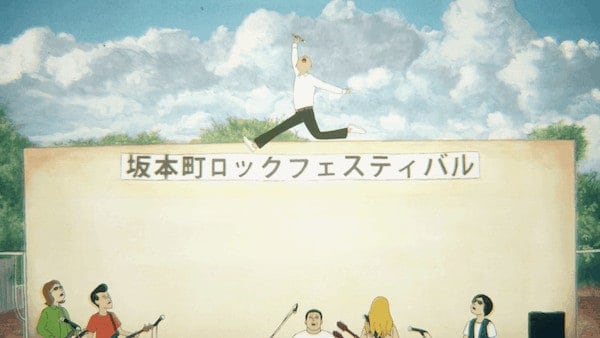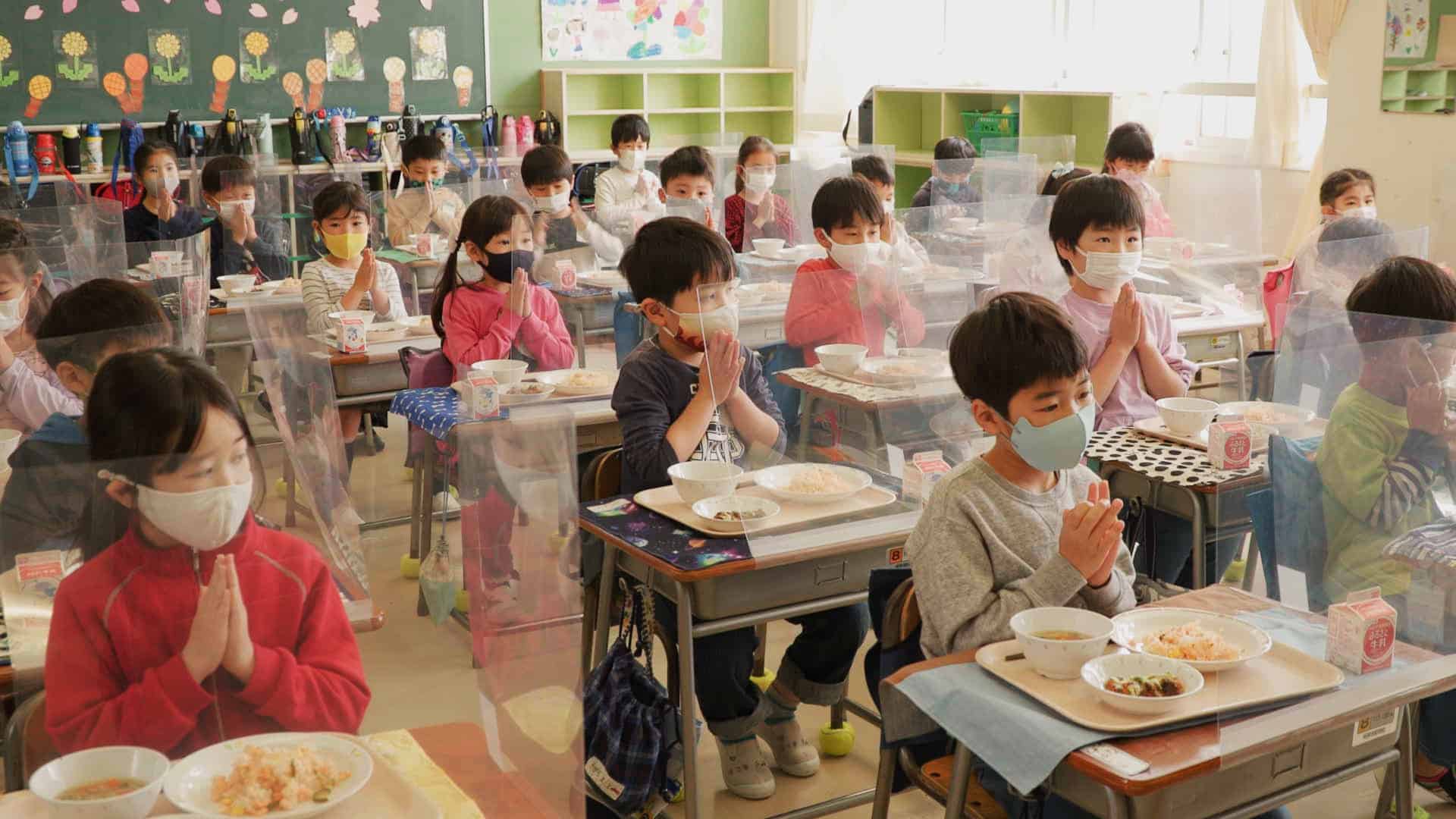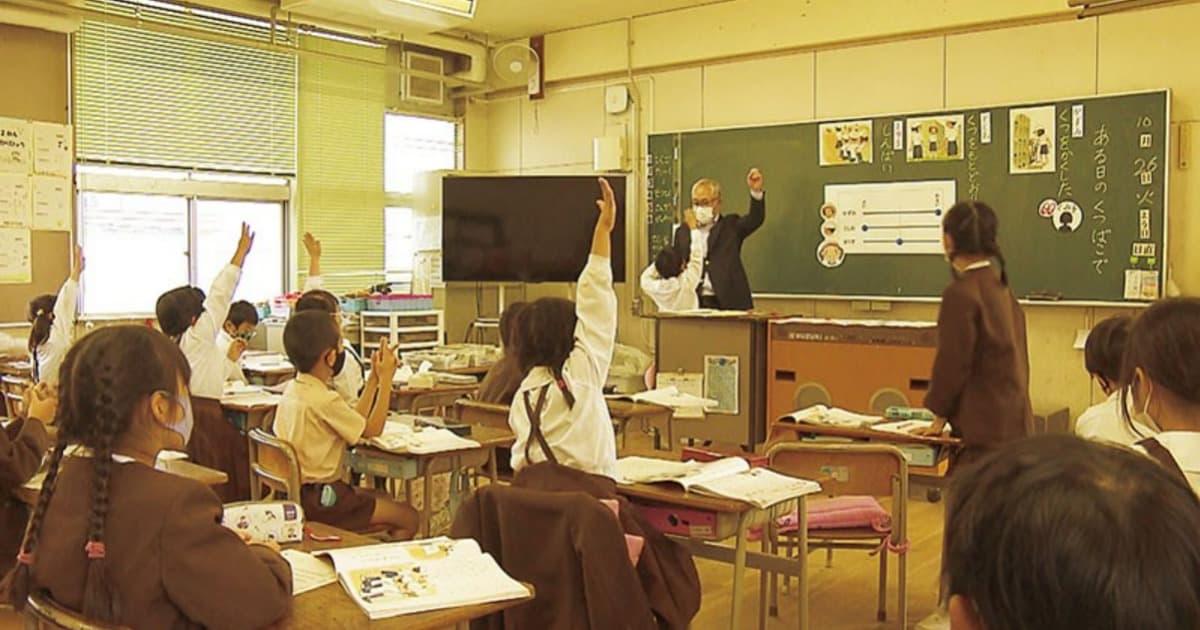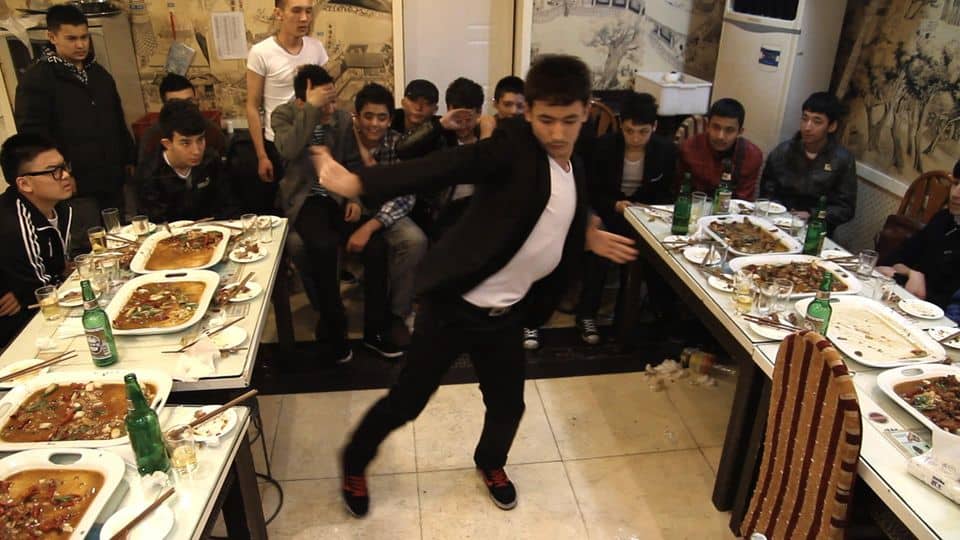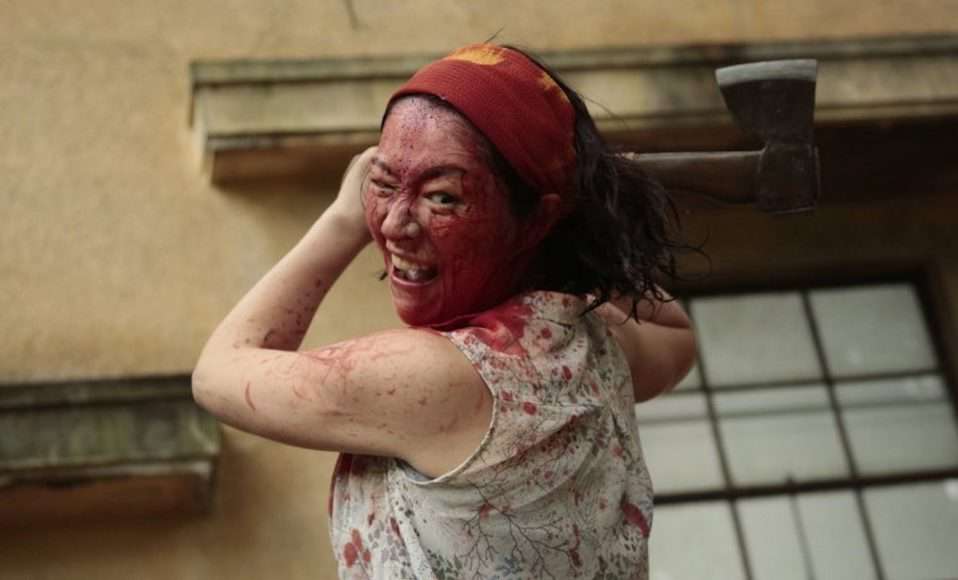“I am an agnostic filmmaker…”
Perhaps it is a quite fitting conclusion that the final film of Mohsen Makhmalbaf's “Poetic trilogy” is also the one which sparked the most controversy. “Gabbeh” and “The Silence”, the two other entries in the film series, were banned in Iran for supporting the views of Sufism, a branch of Islam which has been subject of persecution in Iran, Pakistan and Saudi-Arabia. The final movie, however, led to Iranian authorities asking for the removal of Makhmalbaf's films from the records of the Iranian Cinema Organization. In the end, the already troubled history Makhmalbaf had in his home country continued, resulting in a permanent exile from his home country for himself and his family.
In the film, Makhmalbaf, together with his son Maysam, travels to the Bahá'í gardens in Israel, one of the central holy places of the Bahá'í faith. The religion, which has been the subject of persecution in Iran, teaches the value of faith as a unifier for all people independent of their origin, their skin color or gender. While Mohsen Makhmalbaf states his documentary aims to explore Bahá'í practices over the course of their filming, an argument between him and his son erupts about the existence of religion in the modern world in general.
Buy This Title
For someone who has watched the previous films, “Gabbeh” and “The Silence”, the transition from a narrative-driven film to a documentary is quite risky. Despite the conventions of the genre, the dialectic approach is almost antithetical to the sensory world created in the former films. However, this criticism remains superficial, since especially the second half of “The Gardener” has to be seen as a logical conclusion to the thoughts and themes of the trilogy as a whole.
Perhaps the most significant aspect of the film is the different attitudes towards the subject matter. Represented by Makhmalbaf and his son, various points of criticism are discussed within the course of “The Gardener”; for example, the accusation of the film promoting Bahá'í practices without question. Even though some of these scenes feel highly constructed, their content constitutes much of the appeal of the film, the views of two generations about the necessity of religion, about faith as the bringer of peace and war.

Within the theme of landscapes, which defines the foundation of the trilogy, this creates a profound extension of the ideas introduced in “Gabbeh” and “The Silence”. Whereas the world of stories and time itself (in “Gabbeh”) as well as (sensory) perception (in “The Silence”) constructed a landscape consisting of reality, dreams and memories, “The Gardener” combines these aspects. In an early scene, Makhmalbaf and his son discuss and eventually argue about the need for filming one of the gardeners. While his father focuses his camera firmly on the routine of the person, his care and love for the flowers, his son is finally fed up with what he sees as a waste of film and wants to move on to a different subject. As Makhmalbaf adds in one of the voice-overs scenes such as this mark his own idea of what film should do, to make you “see better”. In the end, this may seem precocious, but it points at the fundamentally different approach on faith itself: to remain open-minded on the one hand, and become impatient on the other hand. Given their background as well as the troubled link of politics and religion, father and son will have to find their path to see better, as Mohsen Makhmalbaf states.
Finally, “The Gardener” is a film about the nature of faith, about why we believe and about the relevance of religion in our times. Given Mohsen Makhmalbaf's visual approach, his images embrace the beauty of the setting, eventually turning it into a landscape shaped by love and faith. As a conclusion to the “Poetic Trilogy” this is a wonderful last film and an interesting extension of the themes presented in the other two films.
Sources:
Nikolas, Katerina (2011) Iran increases jail penalty for travel to Israel http://www.digitaljournal.com/article/314441, last accessed on: 02/10/2019
https://web.archive.org/web/20141220062109/http://www.tehrantimes.com/arts-and-culture/109310-iran-cinema-organization-asks-film-museum-to-remove-mohsen-makhmalbaf-memorabilia, last accessed on: 02/10/2019





